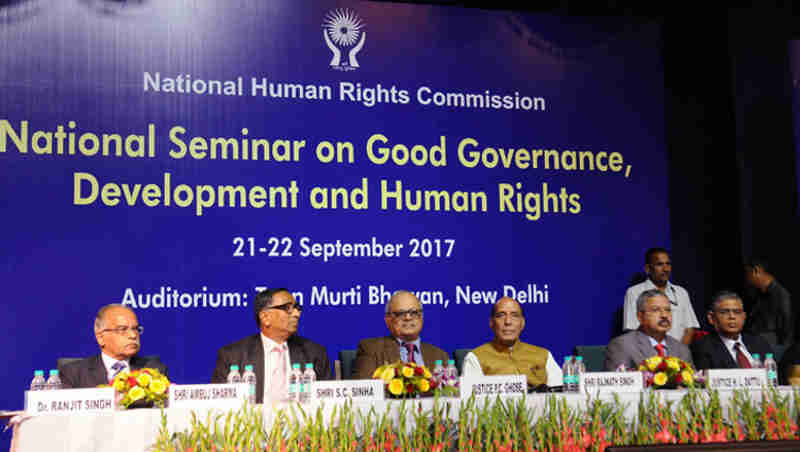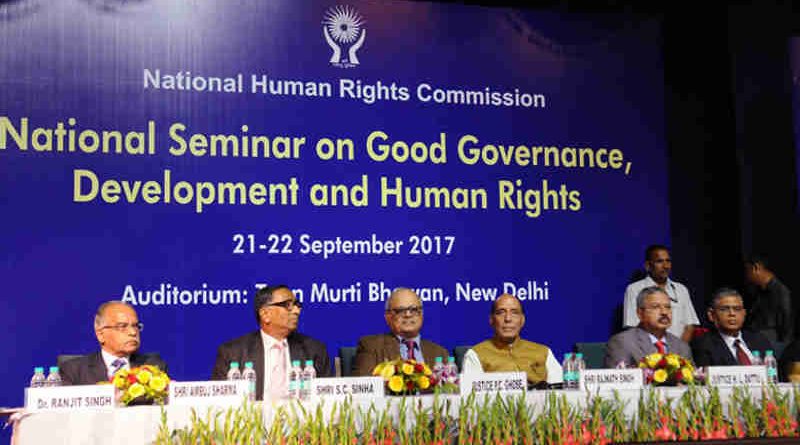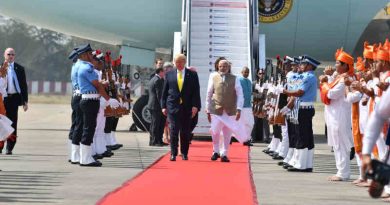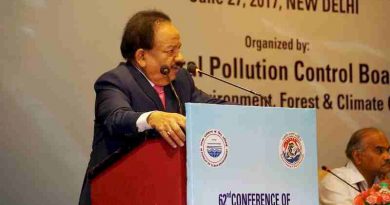Rohingyas of Myanmar Are Illegal Migrants for India: Rajnath Singh

Rajnath Singh, a Home Minister in India, said that in Indian culture the focus has always been on duties and not on rights; if everybody attends to their duties, the rights of all automatically get protected.
He was addressing a National seminar on Good Governance, Development and Human Rights, organized by the National Human Rights Commission (NHRC) in Delhi today.
He said that the concept of Human Rights in the centuries-old Indian ethos is rooted in peace, unlike the West where it shaped up with conflict post-World War-II. The concept of protection of Human Rights in India is linked with the wellbeing of the whole universe, he said.
[ Trump May Impose Tough Sanctions on Modi Regime in India ]
Referring to the issue of governance, Rajnath Singh said that any sovereign nation is free to take action against illegal migrants. He said that the issue of deportation of Rohingyas for India is not a matter of ego and confrontation but of principles.
Meanwhile, the United Nations (UN) High Commissioner for Human Rights, Zeid Ra’ad Al Hussein, has deplored the current measures in India to deport Rohingyas at a time of such violence against them in their country, Myanmar.
According to the UN office, some 40,000 Rohingyas have settled in India, and 16,000 of them have received refugee documentation.
[ Human Rights Situation in India Is Darker and Dangerous: UN ]
“Those who, in the name of human rights, are expressing concern on the rights of others should bother first for the rights of the citizens of India. The citizens of the country have the first right on its resources and not the illegal migrants,” Rajnath Singh said.
Rajnath Singh stated that Rohingyas are illegal migrants; they are not refugees for which a process is required to be completed, which they never followed.
He said that India is not a signatory to International Laws on Refugees or to the UN Refugee Convention 1951; hence, the question of its violation does not arise.
[ Human Rights Abuses Increasing in Modi’s India: Report ]
The principle of non-refoulement would apply to Rohingyas only if, they were given asylum in India. He said that the government is very clear on the issue and to this effect has filed an affidavit in the Supreme Court.
However, Zeid warned that by virtue of customary law, its ratification of the International Covenant on Civil and Political Rights, the obligations of due process and the universal principle of non-refoulement, India cannot carry out collective expulsions, or return people to a place where they risk torture or other serious violations.
[ FAR Construction and Pollution Poised to Kill People in Delhi ]
The Minister said the Government of India has extended aid to Bangladesh for the welfare of Rohingyas there. He described both Bangladesh and Myanmar as friendly countries and said that the State Counsellor of Myanmar, Ms. Aung San Suu Kyi has raised a ray of hope by saying that her country is prepared to take back Rohingyas. He expressed the hope that Myanmar would take some solid steps in this direction at the earliest.
The Minister said that Good Governance, Development and Human Rights are an inseparable trio and the Government is committed to uphold them.
[ Good Governance = No Governance in India ]
Earlier, inaugurating the seminar, Justice H L Dattu, Chairperson, NHRC said that the universality of Human Rights, their focus on human dignity and their concern for accountability make them uniquely appropriate for reshaping notions of development, cooperation, good governance.
The seminar discussion will focus on the role of media in civil society in promoting good governance and human rights, global best practices and impact of information technology on good governance.
It also will cover topics such as service delivery mechanism and measures to enhance transparency and accountability, health and Swachh Bharat initiatives, new paradigm and challenges in good governance with the Indian perspective.
Photo courtesy: Press Information Bureau





